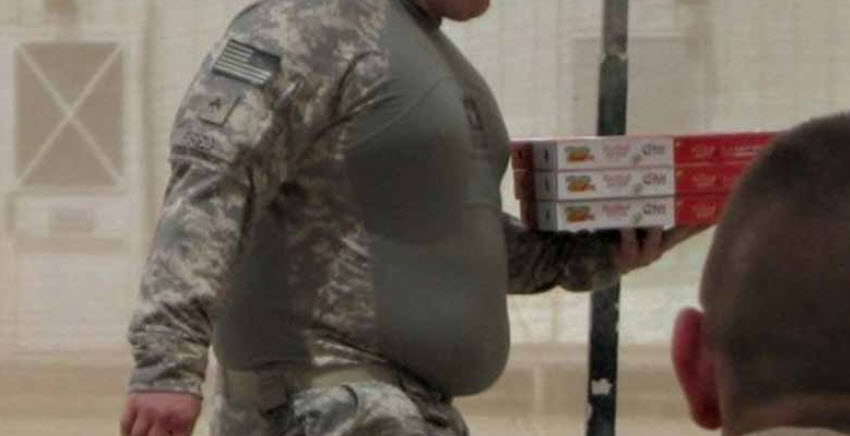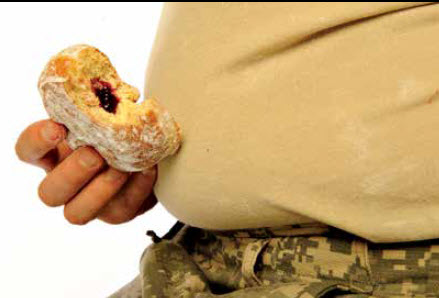All Things Soldier: Obesity As A Security Issue
 By: Ali Elizabeth Turner
By: Ali Elizabeth Turner
When I was in Iraq, as different soldiers from National Guard units would rotate in from all over the country, it was uncomfortable at best to struggle at times with the feeling of being less-than-safe due to the number of them that were obese. Because most of the time National Guard units were on Perimeter Patrol, at times they needed to be able to run down the streets of Baghdad after insurgents in order to keep us safe. But the fact was, they couldn’t do so under optimal conditions, let alone the 130+ degree desert weather. There were several factors in play when it came to the relative lack of fitness of the newest members of our camp: they had either never seen or had long ago seen active duty, and the “cares of this life” had caused them to ease into a life of comfort and little-to-no exercise. Add to that eating devalued, processed, manipulated food; not dealing with stress well; and dehydration and you had soldiers that actually posed a security risk. Personally, I don’t think it helped that Pizza Hut and Cinnabon were available in small, state-fair type mobile trailers, nor that the food in the D-facs (Dining Facilities) was ridiculously plentiful.

To their credit, other soldiers would step up and help them train, hold them accountable, help them make healthy food choices, and basically run them through an improv boot camp to get them back within what could be considered “fighting weight.” But the point is, they should not have had to focus on that while being in the middle of dealing with Al-Qaeda.
Apparently, the problem has not improved. According to a recent study conducted by the Department of Defense shows that the United States Navy has the highest level of obesity amongst its members, a whopping 22%. The obesity rate amongst Marines was 8.2%, and Airmen and Soldiers were tied at around 17%. More than 25% of all service personnel over the age of 35 were obese, and while the Marines were the lightest as well as the youngest, they also reported the greatest amount of back and knee injuries.
Please understand, as someone who has struggled with my weight all my life, my purpose here is most definitely not to cast dispersion, nor do I think that every soldier has to have washboard abs. I know that the technological advances of the 21st century have relegated many aspects of warfighting to the armchair and/or the joystick. On the other hand, there is a reason why there are fitness standards in all branches of service: it is to ensure readiness and the ability to cope well in combat, and not be expected to carry a wounded battle buddy that is too heavy because he or she allowed themselves to be so.

I also am not suggesting that soldiers live off of Spam for months at a time like my dad did during WWII because that was the only thing that would keep in the heat of the Pacific Theatre. I am simply saying that if you take the oath to defend the Constitution from all enemies, foreign, and domestic, you need to remember that your body is a weapon, especially in wartime, and to take care of us, you are going to have to take care of it.
By: Ali Elizabeth Turner

